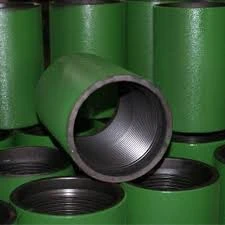- Afrikaans
- Albanian
- Amharic
- Arabic
- Armenian
- Azerbaijani
- Basque
- Belarusian
- Bengali
- Bosnian
- Bulgarian
- Catalan
- Cebuano
- Corsican
- Croatian
- Czech
- Danish
- Dutch
- English
- Esperanto
- Estonian
- Finnish
- French
- Frisian
- Galician
- Georgian
- German
- Greek
- Gujarati
- Haitian Creole
- hausa
- hawaiian
- Hebrew
- Hindi
- Miao
- Hungarian
- Icelandic
- igbo
- Indonesian
- irish
- Italian
- Japanese
- Javanese
- Kannada
- kazakh
- Khmer
- Rwandese
- Korean
- Kurdish
- Kyrgyz
- Lao
- Latin
- Latvian
- Lithuanian
- Luxembourgish
- Macedonian
- Malgashi
- Malay
- Malayalam
- Maltese
- Maori
- Marathi
- Mongolian
- Myanmar
- Nepali
- Norwegian
- Norwegian
- Occitan
- Pashto
- Persian
- Polish
- Portuguese
- Punjabi
- Romanian
- Russian
- Samoan
- Scottish Gaelic
- Serbian
- Sesotho
- Shona
- Sindhi
- Sinhala
- Slovak
- Slovenian
- Somali
- Spanish
- Sundanese
- Swahili
- Swedish
- Tagalog
- Tajik
- Tamil
- Tatar
- Telugu
- Thai
- Turkish
- Turkmen
- Ukrainian
- Urdu
- Uighur
- Uzbek
- Vietnamese
- Welsh
- Bantu
- Yiddish
- Yoruba
- Zulu
api 5ct coupling
Understanding API 5CT Coupling A Comprehensive Overview
In the oil and gas industry, proper pipeline and tubing systems are critical for the efficient extraction and transportation of hydrocarbons. One of the most important components in this field is the API 5CT coupling, which plays a vital role in connecting various sections of casing and tubing. The API 5CT standard is a specification developed by the American Petroleum Institute (API) that outlines the requirements for steel pipes used in the petroleum and natural gas industries. Let’s delve into the details of API 5CT couplings, their types, applications, and significance.
What Is API 5CT?
API 5CT specifies the requirements for drilling and casing tubes, primarily used for oil and gas production. This standard ensures that the pipes can withstand the harsh conditions in which they operate, including varying pressure and corrosive environments. The tubes produced under this standard are typically made from carbon or alloy steel, allowing them to endure high tensile strength and provide longevity in the field.
What Are API 5CT Couplings?
Couplings are mechanical components designed to connect two sections of pipe. API 5CT couplings are specifically tailored for use with API 5CT casing and tubing. They allow for a secure and robust connection that maintains the integrity of the tubing system under various pressure and temperature conditions prevalent in oil and gas extraction.
These couplings come in standard dimensions and specifications defined by API 5CT, ensuring compatibility with different pipe grades and connections. They are crucial in maintaining the required mechanical properties, such as yield strength and tensile strength, to prevent any failure during operation.
Types of Couplings
API 5CT couplings come in various types, including but not limited to
1. Round Thread Couplings These are used for applications that require additional torque and a secure seal. Round thread couplings are designed to provide a tight fit between the casing and tubing, minimizing leaks and ensuring efficient fluid flow.
2. Buddy Connections Also referred to as 'welded connections,' these are designed for quick assembly without the need for threading. They are typically used in specialized applications where conventional casing connections may not suffice.
api 5ct coupling

3. Premium Connections These couplings offer enhanced performance through advanced designs that provide superior sealing characteristics and resistance to thread wear. Premium connections are essential in high-pressure and temperature environments, making them suitable for deep-water drilling and unconventional resource extraction.
Applications of API 5CT Couplings
API 5CT couplings find their primary application in the oil and gas sector, particularly in
1. Onshore Drilling Used extensively in various drilling operations, these couplings ensure that casing sections are securely connected, thereby optimizing oil extraction processes.
2. Offshore Operations The demanding conditions of offshore environments require couplings that can withstand significant pressures and corrosive elements. API 5CT couplings are designed to meet these challenges.
3. Gas Transmission In addition to oil extraction, these couplings can also be used in natural gas pipelines, facilitating the safe transportation of gas from extraction sites to processing facilities.
Importance of API 5CT Couplings
The significance of API 5CT couplings cannot be overstated. They are fundamental to the construction of reliable and efficient wellbore systems. Properly designed and implemented couplings ensure that pipelines are resistant to various environmental factors, minimize the risk of leaks, and enhance safety during drilling operations.
Furthermore, compliance with the API 5CT standard is vital for regulatory reasons. It assures stakeholders that the materials used in drilling operations meet industry standards for safety and performance, reducing the risk of accidents and operational failures.
Conclusion
In conclusion, API 5CT couplings are essential components in the oil and gas industry, playing a crucial role in connecting tubing and casing. Understanding their types, applications, and significance helps ensure optimal operation and safety in drilling and extraction processes. As technology advances and the industry evolves, API 5CT couplings will continue to be a cornerstone of effective and efficient oil and gas operations, supporting the ever-demanding energy needs around the globe.
-
Tubing Pup Joints: Essential Components for Oil and Gas OperationsNewsJul.10,2025
-
Pup Joints: Essential Components for Reliable Drilling OperationsNewsJul.10,2025
-
Pipe Couplings: Connecting Your World EfficientlyNewsJul.10,2025
-
Mastering Oilfield Operations with Quality Tubing and CasingNewsJul.10,2025
-
High-Quality Casing Couplings for Every NeedNewsJul.10,2025
-
Boost Your Drilling Efficiency with Premium Crossover Tools & Seating NipplesNewsJul.10,2025







